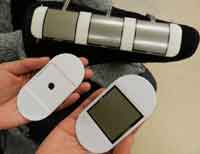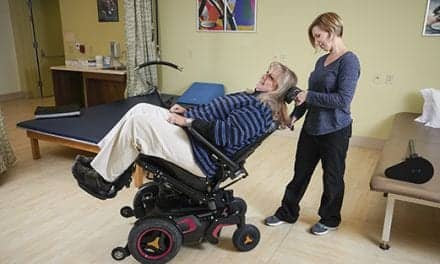Investigators from Johns Hopkins Medicine suggest that when delays in walking and cognitive occur in tandem, this may signal the onslaught of Duchenne muscular dystrophy (DMD). According to the study, which appears in The Journal of Pediatrics, delays in the onset of walking are common among boys with DMD and often occur alongside cognitive delays.
The combination, researchers say, may help provide pediatricians a key early diagnostic clue and alert them to the potential presence of DMD.
In a news release from Johns Hopkins, Kara Mirski, a fourth-year medical student, Johns Hopkins University School of Medicine, explains that the review of patient records she conducted with study author Tom Crawford, MD, pediatric neurologist and muscular dystrophy expert, “shows that delayed walking along with cognitive delays represents an ominous combination that should prompt pediatricians to conduct further testing and could speed up diagnosis and treatment.”
Crawford echoes Mirski’s sentiment, stating “The bottom line is that any delay in walking should lead to further probing, or at least vigilant monitoring, and when late walking occurs in the context of other developmental delays, it should put DMD on every pediatrician’s radar as a possible cause.”
According to the release, current guidelines from the American Academy of Neurology and the Child Neurology Society do not include DMD in the suspected diagnoses list for boys with developmental delays. The team acknowledges that while individually, cognitive or walking delays are not necessarily caused by DMD, when the two occur jointly, this should raise the index of suspicion and narrow the range of diagnostic possibilities.
Researchers explain in the release that once a child has been screened and a diagnosis made, treatment with steroids and physical therapy can help halt or slow muscle damage and help preserve mobility and function.
During the study, the release notes that the team assessed the clinical records of 107 children with DMD referred to the Johns Hopkins Children’s Center between the years 1989 and 2012 for diagnosis or treatment. A total of 42% had a history of delayed walking (16 months or later). Toddlers who started walking late were three times as likely to have cognitive delays as those who began walking on time, the results indicate. Additionally, the link between the time of the child’s first steps and cognitive delays reportedly persisted even when investigators eliminated other factors, such as the speed and severity of muscle degeneration or age of diagnosis.
The release notes that the study results also suggest that DMD patients who began walking late were not referred for diagnostic work-up any earlier than their counterparts who started walking at what is designated as a typical age.
Source: Science Daily, Johns Hopkins Medicine





